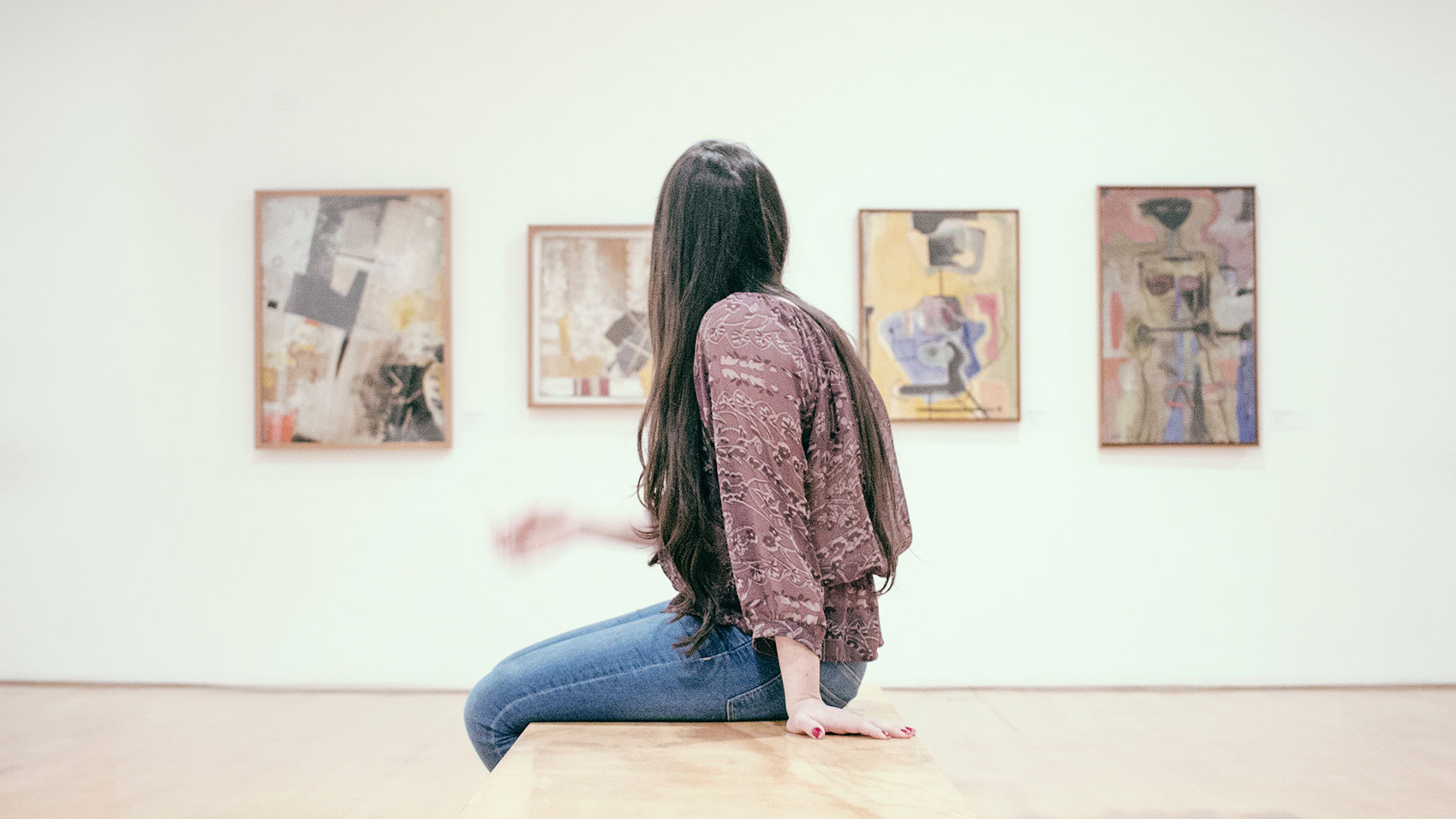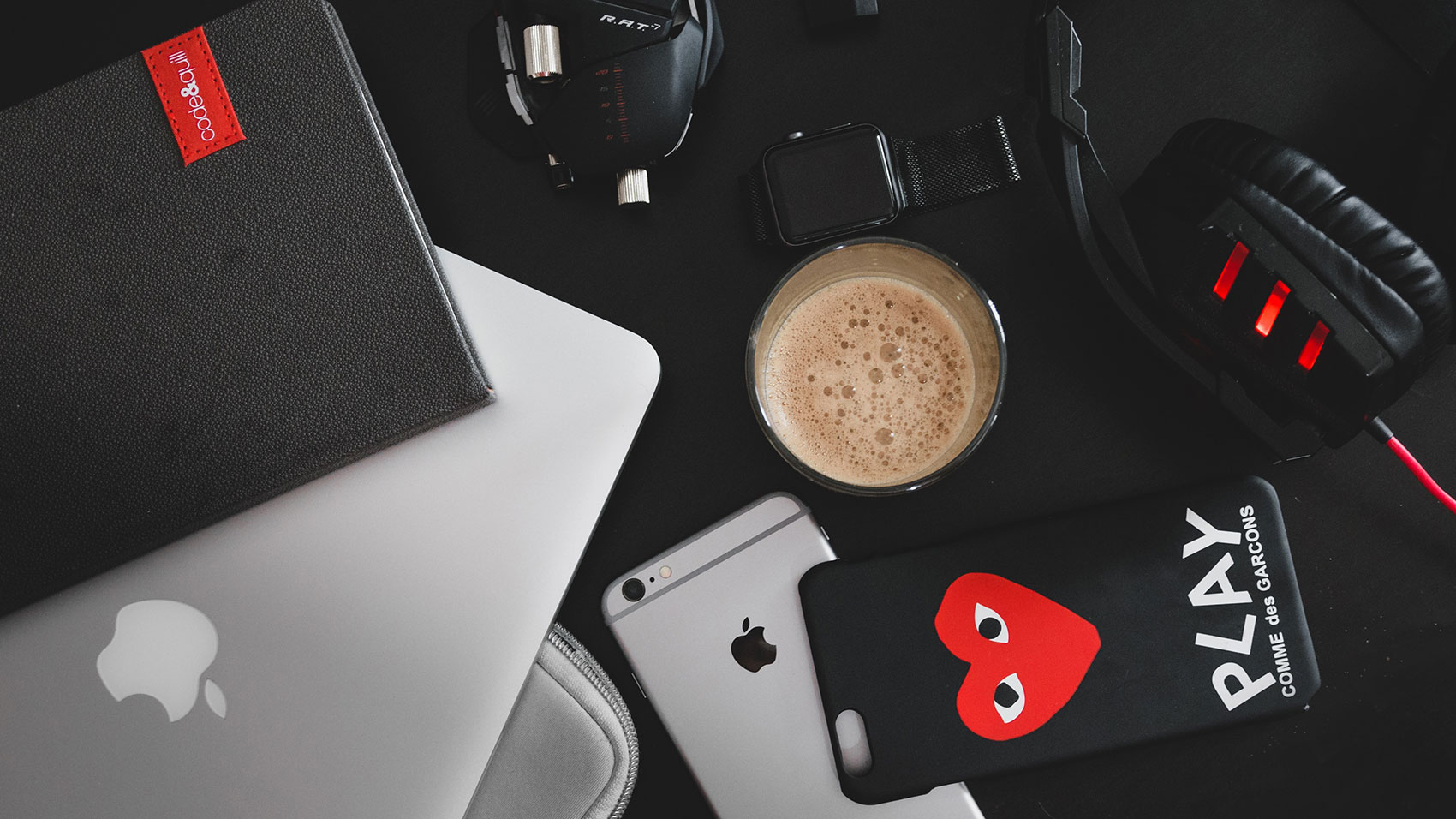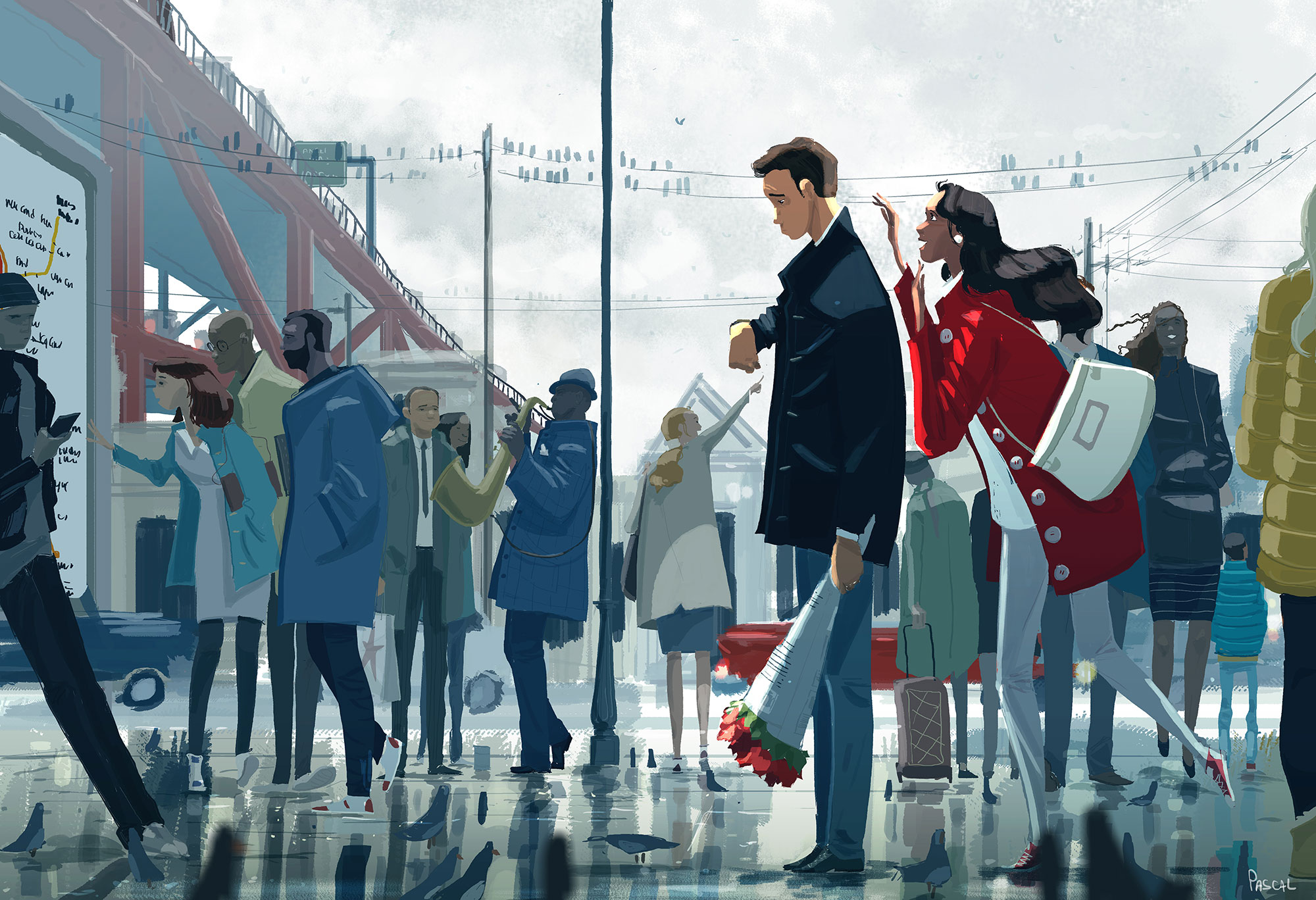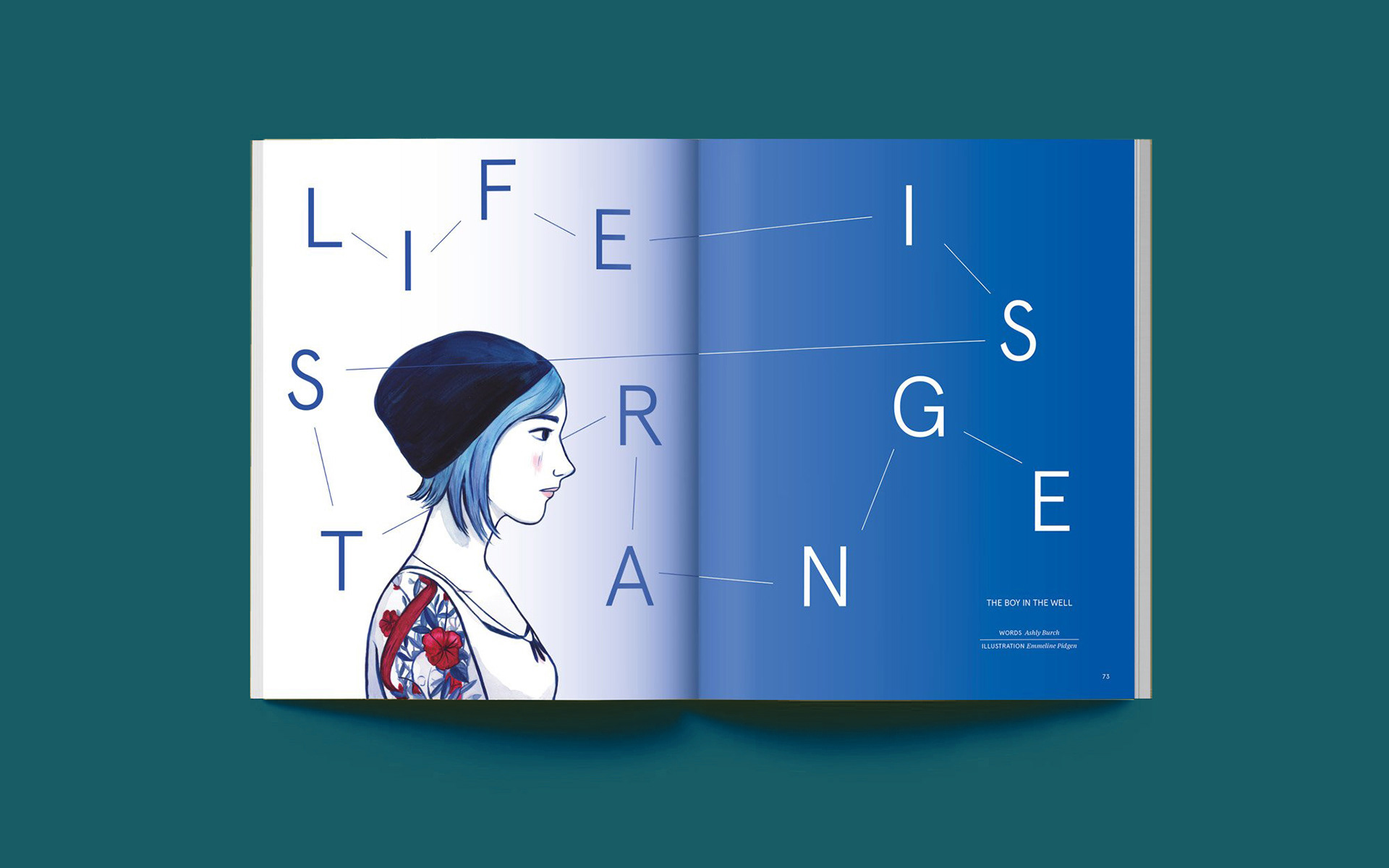How to be a thrifty freelancer
Try these 10 money-saving tips to make the most of your hard-earned dosh this year.

One of the hardest parts of being a freelancer is the money side of things. If you've had regular pay cheque your whole life, living with no guaranteed income can be daunting. Some months you'll be working non-stop, others will be ominously quiet. The easiest way to stay out of trouble – especially when you're first starting out – is by being thrifty with your money. We asked leading freelance artists, designers and photographers for their top tips on being smart with money.
Before we kick things off, here's a bonus tip: there are plenty of helpful resources online that won't cost you a penny – if you know where to find them. Take a look at our pick of the best free fonts, free iPhone apps for creatives and free graphic design software just for starters.
01. Hunt out free entertainment

The Finish illustrator Annu Kilpeläinen, who now lives in London, says starting out as a freelancer doesn't mean putting an end to your social life. You just might have to spend a little less on going out. Kilpeläinen takes advantage of cheap or, better, completely free stuff in her local area.
"If you live in a city like London there are plenty of exhibitions that are free," she points out. But Kilpeläinen has another favourite, budget-friendly pastime, something you can normally do no matter where you live: "Bingo! And you stand a change of winning money, so what's better?"
If even bingo's currently out of your price range, you could always ask for a little bit of extra money: "Lots of smaller jobs have fixed fees but its always clever to try to negotiate your fees up. That £50 extra can get you many nights out at the bingo hall."
02. Buy a good printer

The illustrator and concept artist Valentina Remenar says the big money-saver in her career as a freelancer has been owning a professional-quality printer. They're not cheap, so it meant spending quite a lot of money in the beginning. But she's made it all back and then some – and if your specialism means you need to do a lot of printing, you might find the same.
"Over time I was happy to have it since I didn't have to throw huge amounts of money at professional photo prints whenever I went to conventions or sent them to other people. So, choosing a good big format printer with bigger cartridges was definitely a choice that I didn't regret." Here's our guide to the best printers around (at the best prices) to help get you started.
03. Work out what you need to live on
Before she started freelancing, the typographer Nicole Phillips made a bare-bones list of household expenses – not a single luxury among them. This way she knew exactly how much money she needed to make each month to break even.
"This was critical," she says, "so I didn’t spend money I didn’t really have." That doesn't mean you blow everything over the break-even point. Phillips puts a bit of money aside for her tax bill and to upgrade her tech and software when needs be. "I usually do both the tax and tech fund based on a percentage of my income for the quarter so I don’t get caught short with unexpected expenses."
04. Don't upgrade just for the sake of it

Jaime Zuverza says newest isn't always best. The Austin-based designer and musician says too often people upgrade gadgets and software just for the sake of it.
"You probably don't need the latest greatest programs and technology if you're an illustrator," Zuverza says. "I use a nine-year-old version of Adobe CS and an eight-year-old laptop."
If something's working for you, don't feel you have to upgrade just because everybody else is. Make sure there's going to be a real benefit to your work before you get your wallet out – chances are owning the iPhone one model up from yours isn't going to have a huge impact on your career. Is a slightly lighter laptop with a slighter bigger screen going to win you more commissions?
That said, don't plough on with tools or software that's holding you back. Do your research into what the most cost-effective solution is for your personal needs. We have a range of buying guides on everything from the best laptops to the best drawing tablets to help you make sure you don't waste your money on features you don't need – and our automatic price-checker means you'll see the best offers around.
05. Be wary of headhunters
Justin Gignac is co-founder and CEO of creative talent network Working Not Working. He says one of the best way to be a thrifty freelancer is by not working with headhunters, who will mark up your day rate.
"Some headhunters and staffing companies," Gignac says, "charge anywhere from 15-20 per cent commission for placing you in a freelance gig, meaning you’re worth more than you’re charging and should be getting paid more."
His solution is simple: if a headhunter brings you a job you desperately want, then take it. But ask them to be honest about their fees so you know your true day rate and can negotiate that price in future. "You don’t have to stress as much about saving when you’re actually getting paid what you deserve."
06. Be mindful of the price-effort balance

The artist Pascal Campion says all freelancers should be thrifty with their time: "Too often freelancers ask for too little and put in way more hours than they need into a job and don't even dare to charge these to the employer."
Let's say you've a got a couple of jobs offer: one pays £100, the other £1,000. The higher fee isn't necessarily the better of the two. You need to know how much work, time and effort, will go into each, then you can work out which really pays better.
"If more freelancers just ask for what they are really worth – and I am not meaning what they feel they are worth but what rationally they know they are worth – they could relax a little, focus on the job at hand and not have to scramble with 15,000 jobs to pay the rent and buy medication to keep them calm."
07. Only buy what you really, really need
Worried about quitting your job to go freelance? Take some advice from Armand Serrano. The Filipino artist and animator recently went freelance after packing in his job… at Disney! Being an independent artist takes discipline, says Serrano. But "buying smart" is a discipline of its own. You need to master it. Before you buy, no matter how discounted those trainers are, no matter how good the reviews are at that new taco place, you need to ask a couple of key questions. "Whether it's for work or personal use, before I make a purchase, I always ask myself: Do I need it? Or do I want it? Always works for me."
08. Get the right insurance

For freelancers who need public and products liability insurance (which cover your business against injury you cause to a third party during business activities) or professional indemnity insurance (for claims arising out of an actual or alleged breach of your professional duty), illustrator Emmeline Pidgen recommends UK freelancers join the a-n organisation. A £38 yearly membership includes £5m PPL insurance and £5m PI insurance. "It works out far cheaper than a lot of insurance quotes on their own – plus you get access to a great creative network!" says Pidgen.
09. Reuse your work
Sculptor Romain Van den Bogaer has only been freelancing for three years. Saving money isn't his goal just yet – any profit goes straight back into new equipment and software. But he's still got one eye on the future. He always looks ahead at least six months to ensure he has money coming in. That means planning for conventions where he can sell pieces and scheduling workshops where he can teach.
But his best tip for being thrifty is about making your work work for you: "I try to create artworks for multiple purposes at one time. A demo piece for an educational workshop can be finished later at my studio and be part of my next resin casts releases, then the original piece can be displayed and sold in a gallery."
10. Don't live in the most expensive cities

Where you live can make a huge difference to your cost of living, and today, it's possible to have clients from around the world, wherever you're based. Photographer Maciek Nabrdalik used to live in the US. He's now back in his home country Poland, where living costs are considerably cheaper. He has few overheads and tries to work with international clients who generally pay more than domestic ones. If he travels for work, he'll often extend his stay by a few days and get some personal work out of the visit. And, vice versa, if he wants to go somewhere to take pictures, he'll get an assignment that sends him to that particular place so he saves on flight fares, hotels, and expenses.
Read more:

Thank you for reading 5 articles this month* Join now for unlimited access
Enjoy your first month for just £1 / $1 / €1
*Read 5 free articles per month without a subscription

Join now for unlimited access
Try first month for just £1 / $1 / €1
Get the Creative Bloq Newsletter
Daily design news, reviews, how-tos and more, as picked by the editors.
Gary Evans is a journalist with a passion for creative writing. He's recently finished his Masters in creative writing, but when he's not hitting the books, he loves to explore the world of digital art and graphic design. He was previously staff writer on ImagineFX magazine in Bath, but now resides in Sunderland, where he muses on the latest tech and writes poetry.
